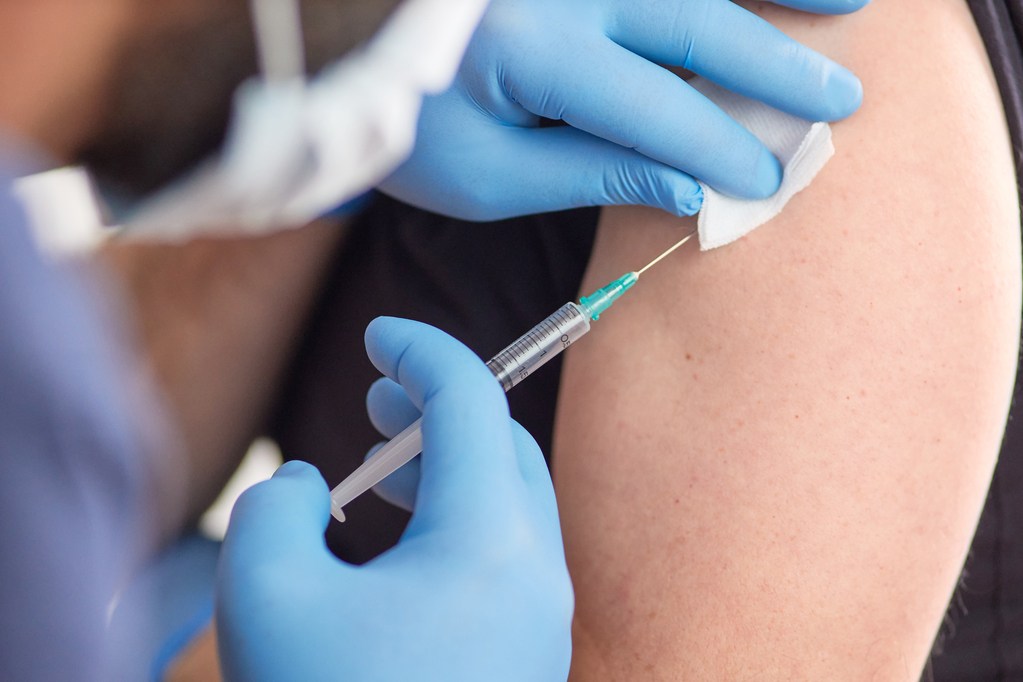While the Commission focuses on more production and distribution of vaccines in the second quarter of the year, the member states still are facing logistical problems in vaccinating their citizens.
In February the Commission announced that additional 300 million does will be delivered starting as of April. Recently, the Commission repeated the overall figure of 300 million doses of approved and not-yet approved vaccines to be delivered soon. While there is an upward trend in vaccine deliveries, the exact figures are volatile and needs to be taken by care, according to the Commission.
According to the Commission’s targets, at least 80% of people over the age of 80 and 80% of health and social care professionals in every member state should be vaccinated by March 2021. At yesterday’s press conference in Brussels, the chief spokesperson said the Commission believed that the goal is achievable.
The Commission counts on that the vaccine producers will abide by their contracts and increase their production capacity to deliver the amounts of doses they have committed to, irrespective from which production facility. But the Commission does not deny that United Kingdom might have imposed an export ban on vaccines from its production facilities to the EU.
Yesterday, the Commission announced that it had reached an agreement with BioNTech-Pfizer for the supply of four million more doses of COVID-19 vaccines for member states in the next two weeks in order to tackle coronavirus hotspots and to facilitate free border movement. The chief spokesperson however admitted that no specific guidelines for their use have been issued.
Figures about vulnerable groups in society, such as inmates, migrants, asylum seekers, minorities, and to what extent they are vaccinated, are missing. Advocacy groups for Roma minorities, already a disadvantaged group as regards health care, argue that they should get better access to vaccination and become a priority group.
In an attempt to speed up the vaccination campaign, the Belgian Inter-Ministerial Health Conference announced on Wednesday that Belgium has decided that the standard interval between two Pfizer injections will be extended from the recommended 21 days to 35 days.
The same decision has been taken by other member states and the United Kingdom. In fact, maximum immunity against the disease, around 95 %, is only achieved after the second shot or rather two weeks after the shot. In the meantime, those vaccinated by only one shot will have continue to be extremely careful.
Some EU member states have ordered vaccines from China and Russia, although these vaccines have not yet been granted authorisation by the European Medicines Agency (EMA). Contrary to what have been said before by the Commission, member states are apparently allowed to take emergency decisions on their own and allow these vaccines to be used in their territories.
Asked by The Brussels Times if the Commission intends to publish any guidance to the member states as to how they should improve the effectiveness of their vaccination programmes and make maximum use of available vaccine deliveries, the Commission spokesperson replied that the countries still are in the middle of the rollout.
“It’s challenge for the EU, a bloc of 450 million inhabitants, to carry out vaccination campaigns in 27 member states. It’s their responsibility to implement their vaccine strategies and take the necessary decisions.”
That said, he encouraged them to learn best practice from other countries, including Israel, where by now around 55% of the population has received the first shot of the vaccine and 39 % % the second shot. Among people 50 and older, the vaccination rate is 89 %.
However, many people are still unvaccinated because of vaccine hesitancy. To achieve group immunity, children under the age of 16 will also have to be vaccinated according to experts.
As previously reported, the rollout of the vaccination programmes in EU became more transparent in February when the European Centre for Disease Prevention and Control (ECDC) uploaded a special tracker mechanism to monitor the deliveries and use of the vaccines. The COVID-19 Vaccine Tracker is an interactive ‘live’ dashboard that provides the latest data reported by EU/EEA countries.
According to the latest figures (10 March), 55,3 million vaccine doses have been delivered to the member states, out of which 42,7 million doses have been administered. On average, the uptake of the first dose is 8,5 % and of the second dose 3,5 % of the population but the uptakes vary by country, indicating bottle-necks and regional variation.
The ECDC referred The Brussels Times to a report from beginning of February which included a description of the vaccination challenges from an organisational and implementation perspective. “A more detailed assessment is currently in the plans in collaboration with European Commission, however a new report is not expected before end of March.”
The Commission could not say when exactly the report is expected and in the meantime the member states will have to overcome the obstacles and challenges without any EU guidance.
M. Apelblat
The Brussels Times

